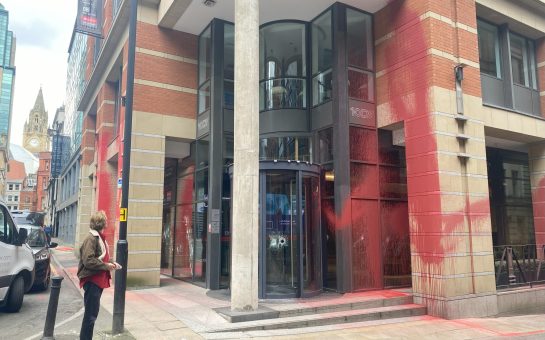Thirteen people died during or following contact with Greater Manchester Police in 2023/24, according to the Independent Office for Police Conduct – the second-highest number of deaths recorded for a force in England and Wales.
The report found that out of the 13 deaths, three people died as a result of road traffic collisions, another three people died in or following police custody, one person died to suicide following police custody, and six people died following other police contact that didn’t involve arrest or detention.
Kate Green, Deputy Mayor for Safer and Stronger Communities in Greater Manchester, said: “The number of these deaths in Greater Manchester is at its lowest in eight years, except for during the COVID lockdowns, and have been falling steadily for the last three years.”
IOPC reports from the past four years show that the total number of fatalities during or following contact with GMP was 16 in 2022/23, 25 in 2021/22, 12 in 2020/21 and 19 in 2019/20.
Green pointed to the fact that the Greater Manchester Police force is the second-biggest force in the UK. They serve more than 2.5 million people across 500 square miles.
She added: “Any death is one too many. I am confident that Greater Manchester Police is constantly reviewing its processes and approach to learn from these tragic incidents and I will continue to support and challenge them so the residents of Greater Manchester can have confidence in their police service.”
A GMP spokesperson said: “We welcome any accountability that helps ensure that the service we provide for the people of GM is the best it can possibly be.
“Every year we respond to as many as a million calls for officers to protect the public in their time of need. Officers regularly face complex and dynamic situations which can often involve vulnerable people.
“Incidents where someone sadly dies following police contact is deeply impactful for that person’s loved ones and can also cause a lasting personal effect on those officers involved.
“Some of the incidents in this report are subject to ongoing IOPC investigations that we are fully assisting with to establish whether they may have been preventable.
“We continue to give total cooperation to the complaints process to ensure the people of GM can have trust and confidence in their police force and the ever-improving service we are providing.”
The police have a statutory duty to refer all deaths to the IOPC.
Once a fatality has been reported the IOPC examines the circumstances in which the death occurred, and decides whether an investigation is needed.
The IOPC has four options when choosing the right mode for the investigations.
- It can choose to direct and control the investigation using police resources. The police investigator has to submit the finished report to the IOPC for review.
- It can return the investigation back to the police force provided that the force submits the finished report to the IOPC for review.
- It can return the investigation back to the police force to handle the matters as they see fit. No report is needed for review.
- It can choose to investigate independently. In such cases, the IOPC investigators have all the powers of the police.
The IOPC determines its independent investigations for the “most serious incidents that cause the highest level of public concern, have the greatest potential to impact on communities, or have serious implications for the reputation of the police service”.
Since 2010/11, all cases under the category “other deaths following police contact” have been investigated independently by the IOPC. In 2023/24, nearly 30% of the police forces recorded most fatalities in this category.
Feature image credit: Bruno Martins via Unsplash




